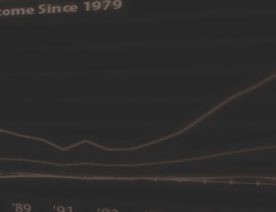
An analysis of the 2014 General Social Survey (GSS) reveals a complex relationship between the American public and the criminal justice system. Over the past 20 years, there has been a gradual decline in the percentage of Americans who believe there are instances in which police use of force against citizens is justified. However, when asked about specific law and order scenarios, the trend is less clear, with acceptance for the use of force increasing in some cases and decreasing in others. Other attitudes, such as support for capital punishment, have remained relatively stable in recent years.
Even controlling for other demographic, socioeconomic, and political factors—like age, gender, income, education, and political party—the data show vast differences between the attitudes of whites and blacks when it comes to how the police and the courts should interact with citizens, as well as spending on law enforcement.
Four Things You Should Know from the 2014 GSS Questions
on Crime and Law Enforcement in America
Among American Adults
- There are large racial and ethnic differences on many crime and law enforcement attitudes.
- Fewer than half of blacks (44 percent) and Hispanics (48 percent) say they favor the death penalty for persons convicted of murder, while two-thirds of whites say they favor the death penalty.
- A majority of whites (70 percent) say there are situations in which they would approve of a police officer striking a citizen, while fewer than half of blacks (42 percent) and Hispanics (38 percent) say the same.
- Forty-six percent of Americans say the country spends too little on law enforcement, which is an all-time low.



